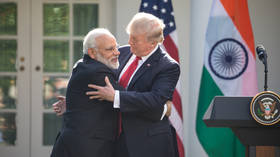With every new president comes the inevitable discussion of the first 100 days. “The Hundred Days — as they are called,” radio broadcaster George Sokolsky wrote in 1961, “are any President’s grand opportunity to create the atmosphere for himself to establish leadership.” In April 1981, Roger Mudd anchored a prime time documentary on NBC News, entitled “Reagan: The First 100 Days,” where he called the president’s time—which included an assassination attempt—“a period unlike any other in almost 50 years.”
In recent years, the metric has been extended into discussions of second terms as well. “Shock and awe,” is how Sen. John Barrasso described what he predicts is on the horizon for President Donald Trump, who ramped up expectations further with promises about day one, let alone the first 100. In a moment of reality television politics during his inaugural festivities, Trump sat on stage at the Capital One Arena, with the cameras rolling, signing one executive order after the other.
There is good reason that the idea of 100 days has remained a staple in American political discourse. The roughly 14-week period offers a neat framework though which the media and others can categorize the essential messiness of presidential politics. Perhaps most importantly, presidents themselves have embraced the idea, and new administrations strategize in an effort to do as much as possible during the limited time frame.
But the concept of the 100 days has outlived its usefulness. Indeed, it was never the best way to think about the presidency. The idea has often distorted how we think of presidential politics, imposed unhealthy pressures on policymaking, and generated unrealistic expectations about how U.S. democracy functions.
Although historians often trace the idea of “a hundred days” to Napoleon Bonaparte and the period that bridged his return to Paris in 1815 and King Louis XVIII’s restoration to the throne a few months later, the contemporary notion of the first 100 days took hold under Franklin D. Roosevelt in 1933. Following an inaugural address in which Roosevelt assured the nation that it had nothing to “fear but fear itself,” he tried to show this principle in practice by confronting the massive crisis of the Great Depression in a proactive manner. Rather than waiting for the crisis to subside, Roosevelt would push Congress to legislate.
Coupled with the fireside chats that he delivered on the radio to alleviate national insecurity, Roosevelt was able to move an unprecedented slate of major legislation through Congress. The Emergency Banking Act imposed new standards for the reopening of banks and expanded the power of the Federal Reserve to stabilize finance. The Federal Emergency Relief Administration created new government jobs at the state and local level to provide the unemployed with work, income, and dignity. The Agricultural Adjustment Act put into place a system that increased crop prices and established an agency to oversee farm subsidies. The Tennessee Valley Authority aimed to bolster the entire infrastructure of the region surrounding the Tennessee Valley, while the National Industrial Recovery Act promised to stabilize prices and wages while creating some coordination between government and business. And there was much, much more. During a fireside chat in July 1933, Roosevelt spoke to the public about the “crowding events of the hundred days” as “devoted to the starting of the wheels of the New Deal.”
The cumulative impact of Roosevelt’s legislative onslaught was dramatic and remains so. Through the flurry of new policies came the concept of the 100 days. With his New Deal, Roosevelt had set the bar high.
Since then, most presidents have bristled at the inflated expectations placed on them. President John F. Kennedy went so far as to say in his inaugural address in 1961 that “all this will not be finished in the first 100 days. Nor will it be finished in the first 1,000 days, nor in the life of this administration, nor even perhaps in our lifetime on this planet.” On this issue, the complaints have been bipartisan. In 2017, Trump dismissed the 100 days, via a tweet, as a “ridiculous standard” (later boasting of how much he had done during his time).
Nonetheless, the standard has endured. Some presidents, such as Lyndon Johnson and Ronald Reagan proved to be more successful than others. In the 100 days that followed his inauguration, which came after a landslide defeat of Sen. Barry Goldwater in 1964, Johnson worked at a frenetic place to outdo his hero, FDR, by making his 100 days something that historians would remember. In many respects, Johnson achieved his goal. By the end of the summer, Congress would pass the proposals put into motion during the 100 days, including the Voting Rights Act, the Social Security Amendments of 1965 (Medicare and Medicaid), the Elementary and Secondary Education Act, and more. These and other policies came after the passage of the Civil Rights Act of 1964 which Johnson had already moved through Capitol Hill following his elevation to the presidency after Kennedy’s assassination in November 1963. Although his legislative record paled by comparison to Johnson or Roosevelt, Ronald Reagan gained credit for the release of American hostages in Iran, which happened minutes after he was sworn in as president.
Other presidents have not fared so well. Kennedy’s reputation was damaged significantly by the botched Bay of Pigs operation in Cuba in April 1961. President Bill Clinton became so caught up in controversial cabinet nominations and a faltering economic stimulus package that Time magazine was left describing him on its June 7, 1993, cover as the “Incredible Shrinking President.”
But the reality is that evaluating presidents through the 100 days framework has always been a limited tool. Over time, performance in the 100-day period does not predict how a presidency will end up. There have been many presidents, including Johnson, whose failures and problems down the line, such as the Vietnam War, end up vastly overshadowing policy accomplishments that take place earlier. The political prowess that is on display at the outset of a presidency often looks different toward the end. Jimmy Carter, who many in the media considered as having an extremely successful 100 days—which included signing the Reorganization Act, which would allow the president to reorganize the executive branch in pursuit of efficiency; and an economic stimulus package that he signed into law 2 weeks after the 100 Days ended—suffered so much during the next few years that his reputation ended up being exactly the opposite of a leader who understood how to move the political needle.
Key breakthroughs frequently happen outside the 100-day window, including the final passage and signing of bills. When the lens for analyzing performance is constrained into this time frame, we miss much of what presidents have done at other points in their presidency which can have an enormous impact. President Harry Truman, whose 100-day period was not momentous, successfully lobbied Congress to approve the Marshall Plan in 1948—a massive infusion of support to Western Europe in an effort to stave off communism. One of President Dwight Eisenhower’s signature achievements, the National Interstate and Defense Highways Act (which produced our modern interstate highway system), was not signed into law until June 29, 1956, six months before the end of his first term. One measure that became most consequential for President George W. Bush was the Emergency Economic Stabilization Act of 2008, a bill that helped prevented the financial system from totally collapsing and one that he signed into law just months before leaving office.
Presidents have begun to use executive orders with increasing frequency to circumvent legislative gridlock, but even these don’t always happen on the first 100 days clock. While Clinton signed 57 executive orders in 1993, he also signed 54 in 1994 and 40 in 1995. George W. Bush’s high-water mark of executive orders came in year one, with 54, but there were many others along the way, including 41 in 2003 and 45 in 2004. President Barack Obama signed nearly as many in the final year of his first term (39) as he did in the first year (40). Some of the most important executive orders come in the final year of a second term presidency, as was the case with Clinton and environmental protections.
The 100 days has created a skewed understanding of what presidents have been able to accomplish. The idea has likewise produced artificial expectations about a shortened timeline that downplays the immense value of slow, deliberate, and incremental struggles for policy breakthroughs that can take years, not weeks. Rather than emphasizing doing as much as possible as fast as possible, one historian wrote that “the focus” of this period “should be on policies and legislation that can lay the groundwork for a propitious environment and long-term gains.”
Within politics, the belief in the reality of a 100 days can sometimes incentivize presidents to force too many major programs into the early days of a term, overloading the system and dooming measures to failure that might have been better served being handled at a later period or in a more deliberative fashion. In recent years, reconciliation, a procedure that prohibits the filibuster, had forced presidents to design proposals in all sorts of gimmicky ways that allow them to be put into the budget without as much consideration for the long-term implications for the program—sunset provisions that cause programs to expire after ten years, downplays regulation in favor of taxes and spending, and excludes certain policy problems that can’t be considered because of the budget rules, as Ezra Klein has argued. The difficulties a president making progress on proposals during the 100-day mark can encounter create self-perpetuating media narratives fueling the perception of a president as being weak, which then emboldens opponents and deflates supporters.
Even the history of Roosevelt is based on misconceptions of the period. Many of the key measures in the 15-bill package, as the historian Patrick Maney has argued, originated from Capitol Hill. In the rush to passage, some proposals were watered down to a point that undercut their effectiveness; in other cases, mistakes were made in the original design.
It is extremely difficult to get out of familiar narratives about politics. Commentators, scholars, journalists, politicians, and non-expert citizens become accustomed to certain approaches to measuring leadership.
But in the effort to strengthen U.S. democracy so that the government can perform more effectively in an era of hyperpolarization, reevaluating the metrics that we use to talk about being effective is an essential place to start.
Rather than focusing on 100 days, the entirety of a term should be how we think of what presidents do or don’t do. We need to pay as much attention to the acts that take place in the middle of a quiet period and appreciate singular—but long-lasting—accomplishments rather than prioritizing high quantity and speed. And we need to give weight to political progress that takes place through a slow burn, as opposed to a bold burst of activity. The “basic difficulty with the hundred-day benchmark,” wrote Alasdair Roberts in the Wilson Quarterly, “is that it ignores this need for strategy to reflect circumstances. It prescribes the same medicine — an FDR-style legislative blitz — for every new president.”
Presidential effectiveness must be also evaluated within the specific context that a leader governs. Not every president operates within the crisis atmosphere that gripped the nation—and the implosion of the Republican Party—in the early 1930s. And current presidents must contend with a highly polarized political environment, where congressional majorities are narrow and insecure, that limits even the most transformative of leaders. As the size of government has dramatically expanded and the pre-commitments new administrations confront keep getting thicker, the room to maneuver keeps shrinking.
Roosevelt’s 100 days was certainly one of the most significant periods in U.S. history. Yet that doesn’t mean it should continue to be the metric that is used for everyone who has followed. It’s time to talk about the approximately 1,461 days that fill a presidential term and not simply the opening chapter.



















